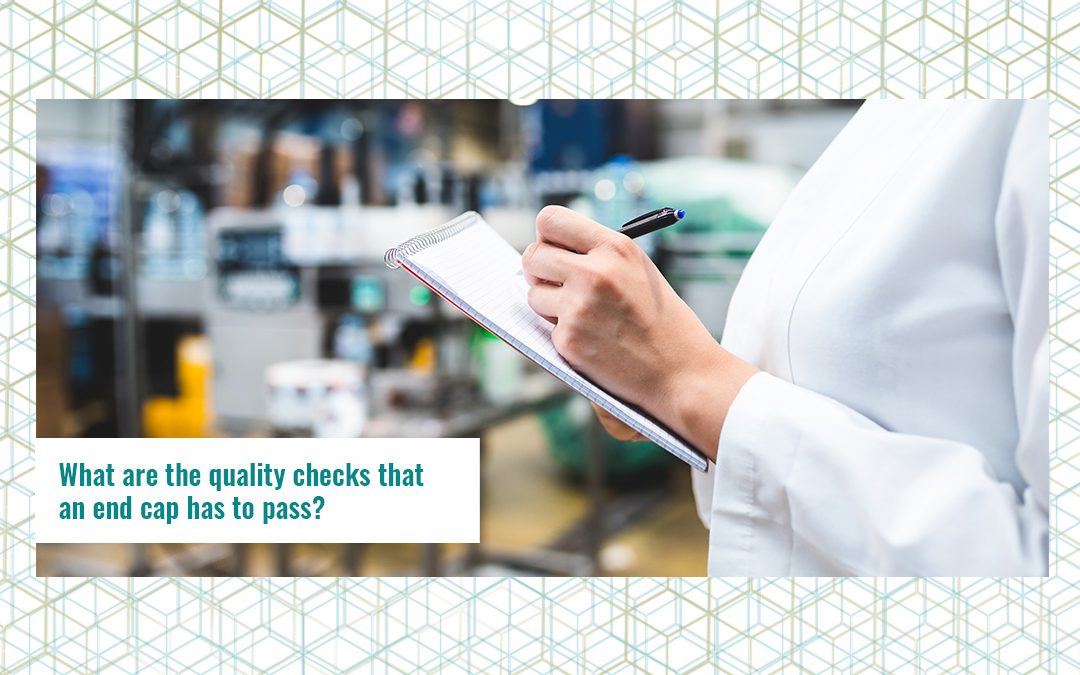Subjecting an end cap to quality control means a way to ensure that it will perform its function optimally. But in addition to this, the raw material from which it is made will also contribute to this.
As you can see, either of these two factors are fundamental to ensuring that both our direct customers and the end users of their products will obtain an end cap in perfect condition. And to ensure they perform their function correctly until the end of their service life.
The entire chain of work involved in the production of an end cap must be carried out under the spotlight of quality. A light that illuminates all FORTAPS processes. Would you like to see it?
Why are quality controls necessary for an end cap?
End caps are necessary components for enhancing user experience during the use of various products.
Failure to perform the necessary quality controls represents a major risk. Because by doing so, we would be condemning our direct customers (manufacturers of furniture, orthopaedic products, etc.) to failing to satisfy their customers. Since they will be building into their own products terminations that may not meet their expectations.
Meanwhile, the value of an end cap as an element of safety should not be underestimated. To such an extent that a poor quality part can have a direct impact on the well-being of the end user. Just imagine a person who needs crutches, the end caps of which break or come loose while he or she is using them.
As you can see, the consequences of the lack of quality control overshadow the manufacturing process and the subsequent use of the product.
The quality checks for an end cap
All FORTAPS activities are carried out in strict compliance with the ISO9001:2015 standard, which Bureau Veritas has been certifying for 18 years. To this end we have developed a Quality Manual based on this regulation. And compliance entails that we audit all processes that take place within the entire operation of our company. In addition to planning, supporting and controlling operations. In this way, we evaluate their performance and, if necessary, we bring about their improvement.
But in addition to everything contained in this international quality certification, at FORTAPS we have adopted a term as a catalyst for our quality: TRACEABILITY.
This means that we examine the quality of our products from the very origin of the raw materials with which we make them.
The materials
PELD and PEHD are the materials that we have chosen for manufacturing our end caps. High and low density polyethylene are highly resistant materials that ensure the quality of both handling and the result. As well as polycarbonate (ABS) for chrome plating, and thermoplastic rubber for anti-slip surfaces. And, of course, these materials must meet their own quality standards. In other words, related to their thermal endurance, greater or lesser degrees of hardness and response to adverse conditions.
Design and production processes
We start the production design process by designing the parts, which may be in our catalogue or made on demand, according to the specific needs of the customer. In all cases, we make sure to include everything necessary to fulfil its purpose in the planning of the element (external fins, splines, split fin, external ribs, etc.). Then we use our own injectors, manufactured with calibrated steels. And we also the most advanced technology in terms of computerised mechanisation. This phase is fundamental, because it is necessary to check the optimum matching and fastening of the end cap to the place where it will fit. In other words that its measurements are correct.
Tests under controlled conditions
As with any product, quality control for an end cap must include testing the result. And that means it is necessary to verify its resilience and durability under the conditions in which it will be used.
Meanwhile, when the end cap is to be used as an anti-slip device, its appropriateness must be empirically proven by means of the necessary tests. The same is true when its uses are geared towards eliminating noise or avoiding marks on the floor.
What else does FORTAPS provide?
In addition to the quality control of the end cap itself, at FORTAPS we oversee everything involved in its manufacture from start to finish. For this reason we also take responsibility to ensure stock and transport. And secondly, we commit to ecological and sustainable production both in the processes themselves and in the materials we use. With the added bonus of managing of our own waste with a focus on recycling.
Do you want to learn more about the quality that illuminates our production processes? Contact us We’ll tell you all about it!





